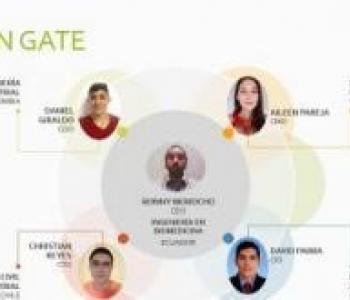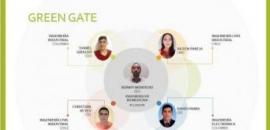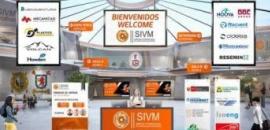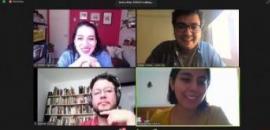You are here
Industrial Engineering student obtained outstanding participation in ASIBEI Bootcamp

The Ibero-American Association of Engineering Teaching Institutions (ASIBEI, in Spanish) held an Open Innovation Bootcamp during April 16th and 17th gathering hundreds of students from different engineering faculties.
The activity’s methodology consisted in developing innovative ideas for different challenges proposed by local and international organizations, based on three sustainable development goals, raised by the 2030 Agenda, and approved by the UN in 2015. The goals are: zero hunger, affordable and clean energy and decent work, and economic growth.
The virtual conferences were carried out through Microsoft Teams, Zoom, and Youtube platforms. From Universidad de Santiago, Mariaignacia Rodríguez, Lions Up coordinator, Diego Urzúa, methodologies coordinator, and Javiera Díaz, student mobility coordinator of the Faculty of Engineering participated in the meeting.
Green Gate: transformation of road traffic into electric power
Aileen Pareja, Industrial Engineering student, was part of the Green Gate team, one of the winning teams of the event. As she explained, the solution they presented consisted in “the construction of a bridge that would transform traffic into electric energy, through a system of dynamos incorporated in its surface and speed reducers, which would turn pressure exerted by vehicles into electric energy.”
The student deeply appreciated working with a multidisciplinary team on the development of innovation, since “each one contributed with different perspectives, experiences, and tools, which allowed us to see the problem in a wider perspective, so that it could be solved creatively.”
Aileen stated that one of her biggest learnings was to make a good pitch, based on the explanatory webinars developed. Alongside, she noted that the mentoring made by students was very helpful, because they helped her to “clarify all the ideas that came up, since each member brought a lot of value and knowledge to the team.”
On his side, Alexis Ibarra, monitor and Mechanical Engineering student, explained that his work consisted mainly in “offering help and encouraging them, in addition to listening to the idea presented by the teams, and giving them feedback based on our area of expertise.” Additionally, he says that the experience by those who had already participated in these kinds of events was very valued. “It was very good when it came to guiding the participants from experience, since the input of an idea is very flattering when presenting the pitch, as it provides a lot of confidence.”
Josefa Pino, Chemical Engineering student, also participated as a monitor in the event, adding that the international nature of these competencies enables “to open up our minds a little more and to adopt new ideas, by learning different perspectives according to the different cultures in other countries.”
In the same way, she also mentioned that one of the most relevant aspects was related to the formation of multidisciplinary teams “since this allows us to know different approaches regarding the idea raised, to leave our comfort zone, and to provide the best innovative solution to the problem or necessity presented.”
The Faculty of Engineering congratulates the students who participated in this intercultural and international Bootcamp, as it represents a great opportunity to enrich their training process and to see engineering as a force of change for important global challenges of the 2030 Agenda.
By: Catalina Águila V.
Translated by Ayelen Parada
Monday, May 10, 2021



